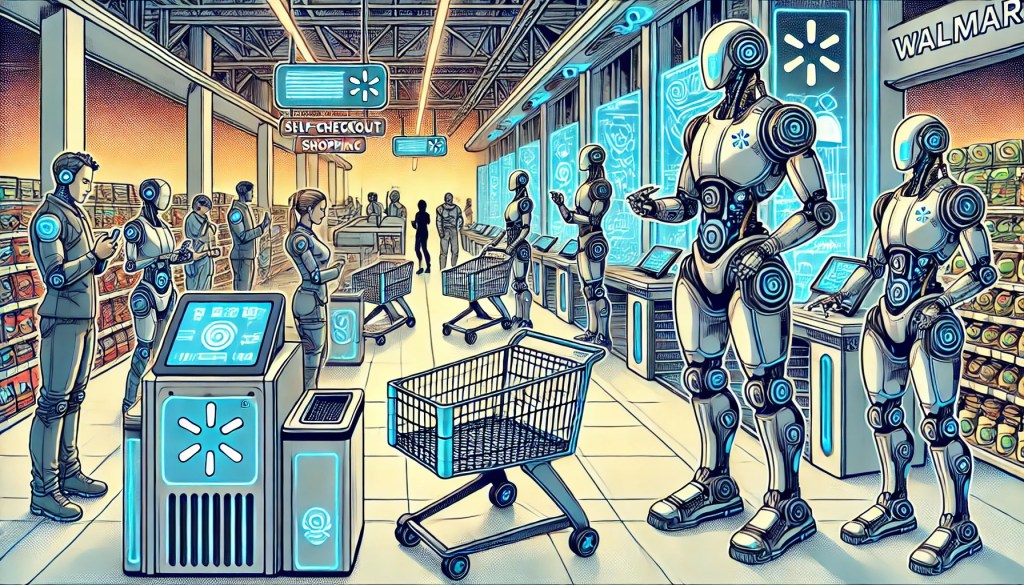Join our daily and weekly newsletters for the latest updates and exclusive content on industry-leading AI coverage. Learn More
Retail giant Walmart is no stranger to AI and has begun testing its own large language model (LLM), which it may use for other applications.
Wallaby, a suite of retail-focused LLMs, is trained on decades of Walmart data and understands how Walmart employees and customers talk. It is also trained to respond in a more natural tone to better align with Walmart’s core values of customer service.
Desirée Gosby, vice president of emerging Technology at Walmart Global Tech, told VentureBeat in an interview that the company wants to extensively test Wallaby before releasing it to a wider audience.
“Wallaby is not being used yet because we are testing it quite heavily internally, in particular with our associates since we have such a large base of associates,” Gosby said. “Over the next year, we’ll start to leverage it.”
While she thinks Wallaby’s first use cases will be more consumer-facing, the new LLM will be part of a stable of models Walmart plans to use when developing new applications.
It’s not surprising that Walmart would choose to train its own series of retail-specific LLMs. Developing internal models is expensive, and even fine-tuning third-party models can get expensive. As one of the largest retailers in the world, Walmart not only has the war chest to experiment with AI models, but it also sits on a ton of customer, employee, logistics and retail data that enriches a model.
Mixture of models
Like many companies, the retailer prefers to use the best model it finds for the use case it wants to address. Sometimes, this means using off-the-shelf or third-party models, or Walmart can use another previously developed algorithm.
Gosby said Walmart has a multi-layered approach to bringing AI to its technology stack. It uses a platform called Element to plug and play different models, both from third parties or its proprietary LLMs, to direct them to specific applications.
“It’s helping us manage those models, and at the foundation are the different LLMs we use, one of which is the retail-based ones in Wallaby,” Gosby said. “At the end of the day, it’s really going to come down to what problems we’re trying to solve, and we will figure out the best approach, maybe it’s leveraging a mixture of models.”
Gosby said during VentureBeat Transform in July that the retailer has been expanding its technology use and taking a platform approach to integrating AI. Walmart had been using GPT-4 for many of its AI applications, especially as more customers were turning to its mobile and web storefronts.
Of course, Walmart is not the only retailer with AI in its applications. Amazon released Rufus, a chatbot powered by AWS models that answers questions about products and references customers’ reviews on the platform.
AI all over its applications
Employees at Walmart’s Bentonville, Arkansas headquarters have been using AI for many years. The company rolled out a chatbot for associates to ask questions about Walmart’s policies and employee handbooks. It has also brought in AI to streamline its operations, including managing its supply chain.
Its physical storefronts —Walmart and Sam’s Club — also feature AI technology to help floor associates assess inventory and manage check-out procedures.
Walmart also expanded generative AI tools on its digital platforms. Gosby said Walmart has had a chat feature for years, but it enhanced its Customer Support Assistant this month. The chatbot will now recognize customers from the start and will be able to understand customer intent.
Walmart showed reporters a demo of the feature that lets a customer express in natural language that they accidentally bought some toys. The Customer Support Assistance focuses on the word “toy” and brings up a recent order for toys, ignoring other purchases that do not fit the conversation’s context. Without prompting, the assistant will also ask if the customer wants to return or keep the product.
The retailer plans to roll out more personalized recommendations and homepages to customers.
Gosby said Walmart will continue to explore how AI can help smooth customer and employee experiences. And in the next year, these experiences may include applications powered by Wallaby.
Source link












